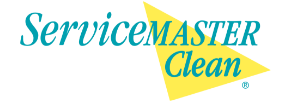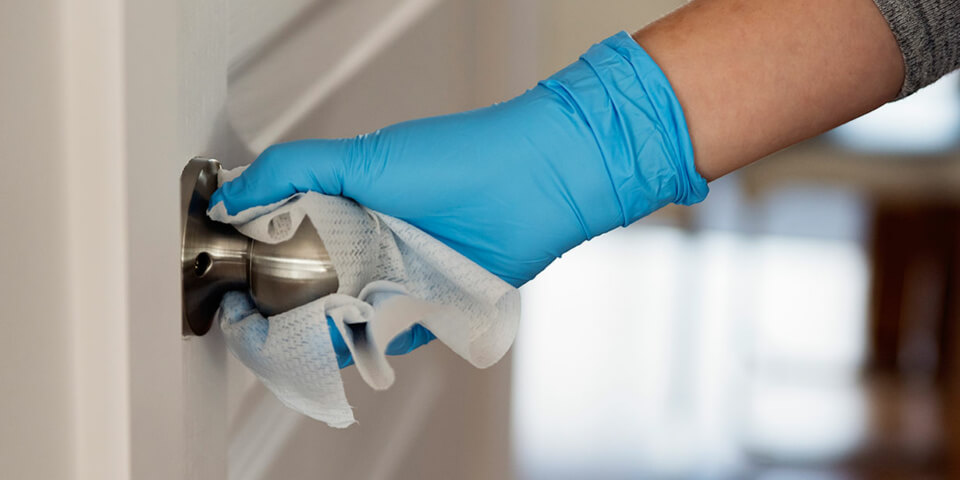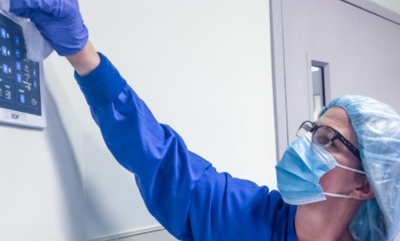How Commercial Cleaning Can Help Combat COVID-19 (coronavirus)
Maintaining a clean work environment has always been important. But in the midst of the COVID-19 pandemic, regular cleaning and disinfecting have become more important than ever.
Trying to run a business right now is more challenging than ever. How do you keep people safe, while still doing the volume of business you need to keep the doors open? How do you protect your employees?
There are several important steps to take, from supplying protective gear to enforcing the guidelines laid out by the CDC and local health authorities. Keeping a clean place of business is one of the most crucial parts of protecting you, your workers, and your customers.
Regular cleaning and disinfecting are key in preventing the spread of the virus that causes COVID-19. And the safest, most thorough, most reliable way to keep your workplace clean is by enlisting the help of commercial cleaning professionals. Commercial cleaners offer the best protection possible to your business. They bring top-notch experience in fighting new viral threats. They’re equipped with powerful disinfectants, the kind that the EPA recommends as a first line of defense against any new virus. And they’ll keep coming back regularly, so that you can focus on your core business while knowing that your employees and customers are safe.
What is Coronavirus (COVID-19)?
Commercial cleaning is part of protecting yourself and your business. But knowing the enemy is another. Understanding what this virus does, how it’s transmitted, and how to take preventive measures against it are all part of the solution. With so much new information coming in all the time—and so much confusion about the facts—knowing more about the new coronavirus can be an incredible help.
COVID-19 stands for Coronavirus Disease, 2019. It is caused by a virus called a coronavirus. The specific coronavirus that causes COVID-19 is called SARS-CoV-2. You may hear people use all three of these terms.
There are at least seven different coronaviruses that can affect humans. Several of them are very serious, causing conditions like SARS or MERS. So you may also hear people call the recently-discovered SARS-CoV-2 “the new coronavirus” or “the novel coronavirus” to specify that of all the coronaviruses, they’re talking about the one that causes COVID-19.
Common COVID-19 Symptoms
The new coronavirus primarily affects the respiratory system, causing coughing and shortness of breath. You may also experience fever, muscle pain, or a loss of taste or smell. Other groups of people have experienced gastrointestinal symptoms. About one third of people treated complained of stomach trouble including loss of appetite, nausea, diarrhea. On top of that, many people treated for COVID-19 are also experiencing blood clotting and severe strokes of far greater severity than expected for their age range. Research is currently underway to understand how and why that is happening. Other symptoms, like a rash reaction people are calling “COVID toes” may also appear, though this isn’t a common symptom at all.
Despite this wide range of symptoms, some people don’t experience any symptoms at all. Part of what makes this virus so dangerous is that people can have it without knowing. If someone with no symptoms—an “asymptomatic carrier”—goes out in public without a mask on, that person can spread the virus to others without realizing it.
As someone responsible for a space where people gather, helping prevent that spread is on you. You’ll want to do everything you can to ensure that an outbreak doesn’t occur at your place of business, including calling professionals to help disinfect your shared surfaces, so that this illness doesn’t transfer from an employee to a customer, or vice-versa.
How Can the New Coronavirus Be Transmitted?
SARS-CoV-2 is transmitted through droplets in a person’s breath. When speaking, laughing or even just breathing, everyone expels droplets of fluid. That fluid can contain a variety of pathogens, including viruses. These droplets don’t usually linger in the air long before sinking to the ground, but if they contact a person’s mouth, nose, or eyes—or a surface where they can be picked up and transmitted to a person’s mouth, nose, or eyes—then the virus can spread.
It is also possible that SARS-CoV-2 can spread through breath aerosols. Aerosols are much finer particles from a person’s breath. They linger in the air longer and travel further than droplets do. Research is still underway to better understand whether the new coronavirus can spread this way, but until the possibility is confirmed or ruled out for sure, it’s safer to be as careful as possible. Wear protective gear whenever you’re out or around people, and treat “6 feet between people” as a minimum instead of assuming that you’re okay at that distance for long stretches of time.
As mentioned earlier, some people can carry the virus without experiencing symptoms themselves. On top of that, this virus has a very long incubation period. You may go anywhere from 2 to 14 days between being infected and experiencing symptoms. That whole time, you can make other people sick. And in a study by Cleveland Clinic, two of the most popular COVID-19 tests had a false positive rate of over 10%. That means that many people who took that test may have been told they didn’t have COVID-19 when they did. Considering the effect that just one person can have in spreading the new coronavirus, a false negative rate that high can be disastrous. People who can spread this disease may leave their home to visit people, believing that they’ve done everything right and that they’re safe.
There’s one more possible factor in novel coronavirus transmission. We also know that areas with higher air pollution have greater numbers of COVID-19 cases. Scientists aren’t sure yet which is the cause and which is the effect. The coronavirus may spread further due to air pollution, or air pollution may cause weaker respiratory systems, and make people more likely to fall ill. We do know that the new coronavirus has been found on particles of air pollution. More research is being done to determine whether it can actually survive on those particles and be transmitted to other people.
One environment that’s particularly concerning is the hospital. One study (still awaiting peer review) suggests that as many as 20% of people with COVID-19 in the UK may have contracted it in a hospital. But we know for certain that thousands of health care workers have been affected. The short supply of appropriate PPE still in short supply means that the risk of transmission is even higher.
Preventing the Spread of the New Coronavirus in Your Commercial Space
Transmission of SARS-CoV-2 is very easy. It’s highly virulent, and it may be transmissible in more ways than researchers originally thought. That means that fighting it is as tough as it is important. But there are things that you can do to help prevent the spread of COVID-19.
- Comply with CDC guidelines and local laws about business closures. If you’re allowed to open your business but conflicted about whether it’s wise to do so, consult with your local health agencies about the potential risks involved.
- Ensure personal protective equipment (PPE) is available to your employees and maybe even your customers.
- Consider requiring PPE for customers entering your store, in order to maintain as safe an environment as possible.
- Communicate expectations to employees on wearing protective gear, how to responsibly interact with customers, and on the importance of staying home if they feel sick.
- Follow guidelines about cleaning and disinfecting procedures. Clean often, and disinfect surfaces that are frequently touched, even if everyone is wearing protective gear.
- Use disinfectants that have been approved by the EPA for use against SARS-CoV-2, and be sure to use them according to the directions.
- Dispose of and replace disposable masks and gloves as appropriate. People, especially ones who aren’t used to wearing gloves, may touch their face with gloves on, at which point the gloves are potentially spreading a virus, rather than protecting against it.
- Be prepared to take action in the event of contamination. If someone who is suspected or confirmed to carry the new coronavirus visits your business, be ready to cordon off the area and air it out, ideally for 24 hours, before thoroughly disinfecting it.
- Know and follow industry-specific guidelines. Check to see if the CDC or your industry’s governing body have issued guidance specific to your business. For instance, hospitals should promptly identify and isolate possible COVID-19 patients. Restaurants and bars may consider changing their layout so that parties are separated by at least six feet while waiting and dining.
How Does Commercial Cleaning Help Against Viral Infections?
Commercial cleaning can help in the fight against viral infections by bringing the right tools and the right experience to bear on the problem. Calling experts who are equipped with the gear and knowledge needed for the job can make a world of difference over handing an employee soap and a sponge and hoping for the best.
- Commercial cleanings are timely. They occur at regular, scheduled intervals that you can depend on, instead of “whenever somebody gets a chance.” This ongoing preventative measure can help reduce the risk of viral infections for the long haul.
- Commercial cleaners are equipped. You don’t have to worry about whether your disinfectant is EPA-approved to fight COVID-19 or not. When you call in the cavalry, they come prepared to deal with the worst, and that includes the new coronavirus.
- Commercial cleaners are thorough. These are professionals who know how to assess a business’s high-touch areas with a cool eye.
- Commercial cleaners can be trained in cleaning and disinfecting businesses of all kinds. From office buildings to hospitals, HazMat to HIPAA, commercial cleaning crews are ready for anything. Well-trained cleaners can deal with sharps, laundry, and any other unique issues that your business may present.
- Commercial cleaners have years of experience in interpreting and following guidelines from the CDC (and others) in order to keep people safe during outbreaks of all kinds.
Regular business cleanings may not hit the most important, vulnerable areas in a workplace, simply because those areas are so familiar that you may not even see them. Everyday tools like the touch screen on a point-of-sale (POS) system are so ingrained in the daily routine that they’re almost invisible. But if your employees aren’t thinking about them, they may not be cleaning them thoroughly, either. Bringing in an outsider, with fresh eyes that aren’t used to your business’s routine, can be an important step in keeping your business safe.
On top of that, letting someone else handle your cleaning frees you up to focus on the reason you opened a business in the first place. Do the work that you’re good at—the work that you like to do—and let other people use their expertise to handle the cleaning for you. Just like you might use a CPA for your taxes, a lawyer for legal questions, or a marketing agency handle your advertising needs, this is an area where specialized skill can be incredibly valuable.
Are Disinfectants Used in Commercial Cleaning Effective Against Coronavirus (COVID-19)?
All of ServiceMaster disinfectants are approved by the EPA to fight emerging viral pathogens. The EPA’s “emerging viral pathogens” list is made of some of the toughest disinfectants around—the ones that they trust as a first line of defense against anything.
The threat posed by SARS-Cov-2 is so new that it’s hard to make definitive claims about specific cleaning products against it. But the EPA has a list of disinfectants that are specifically approved to combat SARS-CoV-2.
This list is made of several different categories of cleaner. The first category is made of the disinfectants that were already approved to use against emerging viral pathogens—the same category we pull from in our fight against germs. This is a select group of disinfectants that can demonstrate efficiency against viruses that are extremely hard to kill—even harder to kill than SARS-CoV-2. They are a first line of defense whenever a new virus emerges.
But there are some other products on the EPA’s list, as well. If a product has demonstrated effectiveness against a harder-to-kill virus, the EPA is including it on their list. Likewise, if a product has demonstrated effectiveness against a different type of human coronavirus, it’s included.
Help Prevent the Spread of Viral Infections in Your Business
There’s no shortage of reasons to be careful about not spreading the new coronavirus. Right now, there is debate over the extent of business owners’ liability in the event that coronavirus transmission does occur at your business. But regardless of liability issues, there are still considerations: For instance, you and your business’s reputation, and the safety of the employees and customers that your business relies on.
Commercial cleaning services are one way to make sure you’re doing the absolute most to keep your business and the people who help it run safe. This is a global pandemic. Everyone is learning more about this disease and how to combat it as we go. But ServiceMaster Clean has years of experience fighting other viral threats as they emerged. That experience is indispensable right now. We know how to keep high-traffic, high-touch areas as safe as humanly possible.
Calling in experts instead of asking employees to clean says a lot about who you are, and how you conduct your business. It means that you aren’t asking your employees to handle a situation that’s outside of their experience. And it means that you care enough to bring in the best. Hiring top-tier janitorial services doesn’t just help combat the spread of illness: It sends a signal about how much you prioritize safety. And in some high-risk environments, like hospitals, knowing that you’ve found experts in cleaning healthcare environments can be somewhere between “a huge relief” and “crucial”.
Remember: whatever route you take in keeping your business clean and safe, be sure and follow all recommended procedures. Wear disposable personal protective equipment like gloves, face masks, and gowns, as appropriate. Be sure to use them as directed and dispose of them properly. Wash your hands often, for the full 20 seconds recommended by the CDC. Most importantly, look out for yourself and the people around you as we all navigate this pandemic together.










